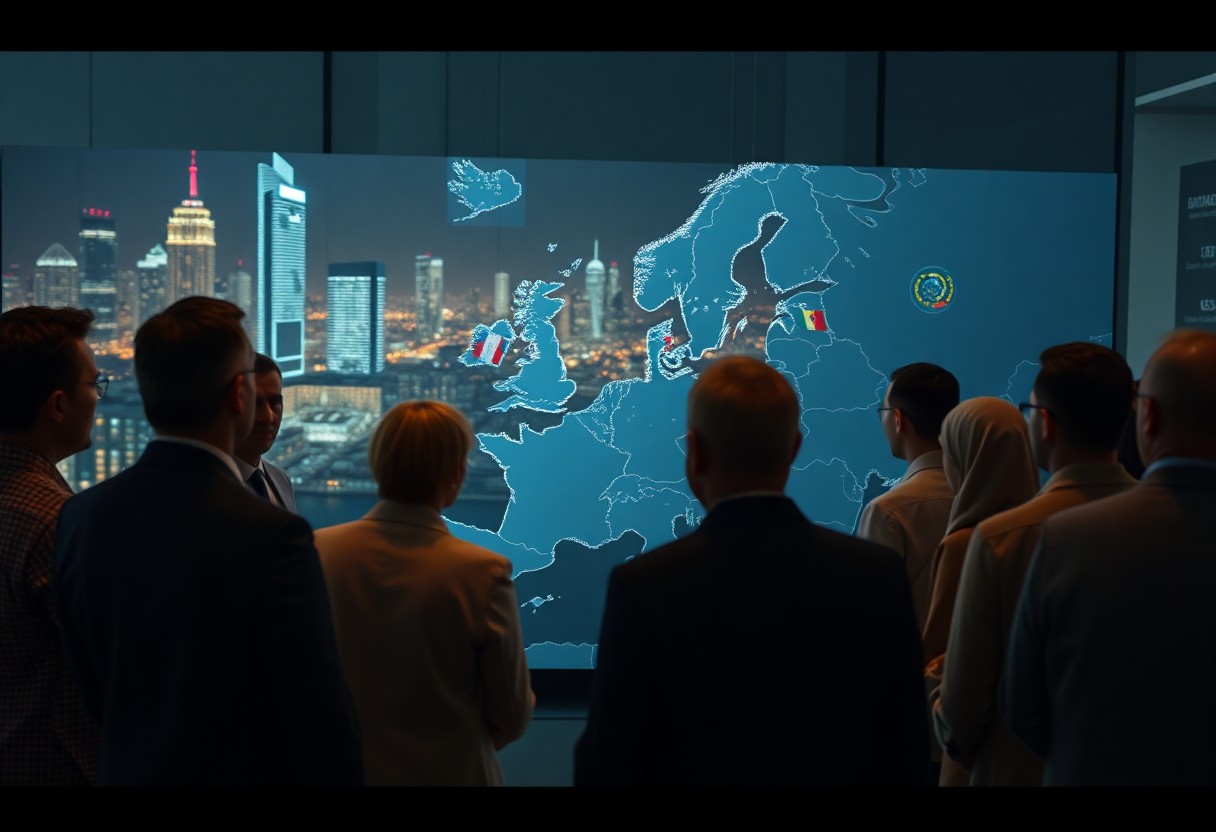It’s crucial to understand the significance of the Master of European Integration (MEI) program, which equips you with the knowledge and skills to analyze and contribute to the complex landscape of European governance. Through this program, you will research into key topics such as EU policies, international relations, and economic integration, preparing you for a career in various sectors. Whether pursuing public service or working in multinational companies, your education will provide you with a competitive edge in the dynamic field of European affairs.
Key Takeaways:
- The Master of European Integration (MEI) program provides in-depth knowledge on the political, economic, and legal aspects of European integration.
- The program typically combines theoretical frameworks with practical applications, often including internships and projects with European institutions.
- Graduates of the MEI program are well-prepared for various career paths in international relations, diplomacy, policy-making, and other roles related to the European Union.

The Historical Journey: Roots of European Integration
The journey towards European integration began in the aftermath of World War II, as nations sought to foster peace and prevent future conflicts. This historical evolution marked a shift from war-torn nations to cooperative partnerships, ultimately leading to the establishment of key institutions aimed at unifying Europe economically and politically. In this context, the need for collaboration among European countries became evident, laying the groundwork for the treaties and agreements that would shape the continent’s trajectory towards integration.
Key Treaties and Milestones
Several key treaties have punctuated the history of European integration, marking significant milestones. The Treaty of Rome in 1957 established the European Economic Community (EEC), while the Maastricht Treaty in 1992 laid the foundation for the European Union (EU). Subsequent agreements, such as the Amsterdam Treaty and the Lisbon Treaty, refined the legal and institutional structures that facilitate cooperation among member states. Each treaty not only brought nations closer together but also deepened economic, social, and political ties.
The Role of Major Nations
Major nations like Germany, France, and Italy have played pivotal roles in the European integration process, frequently acting as leaders in forming and promoting frameworks for unity. Their influence often stemmed from their economic strength and historical significance within Europe. For instance, Germany’s robust economy and France’s diplomatic initiatives during the early formation of the EU were instrumental in setting collaborative policies and resolving conflicts among other member states.
Germany, often seen as Europe’s economic powerhouse, has been deeply involved in navigating the complexities of the EU’s financial policies. Meanwhile, France has repeatedly championed pro-integration stances, advocating for initiatives such as the common agricultural policy and various social programs aimed at fostering European unity. Italy, too, has contributed its voice, particularly through its leadership in Mediterranean issues. These nations not only lead policy directions but also embody the broader ambitions of the EU in promoting stability, growth, and cooperation among its members.
The Mechanics of Policy Formation: Institutions that Drive Integration
European integration hinges on a complex web of institutions that guide policy formulation and implementation. These institutions work in tandem to develop, refine, and execute policies that address cross-border challenges while enhancing cooperation among member states. You will find that these structures are not only integral to achieving common goals but also reflect the multifaceted nature of governance at the European level.
The European Union: Structure and Function
The European Union (EU) comprises key institutions such as the European Council, the Council of the European Union, the European Commission, and the European Parliament, each playing a distinct role in policy-making. The EU’s structure promotes collaboration among member countries, ensuring that diverse interests are represented. Your understanding of this framework allows you to appreciate how decisions are made and the collaborative spirit that underpins integration.
Influencing Bodies: The European Parliament and Commission
The European Parliament and the European Commission serve as pivotal actors in shaping EU legislation. They provide platforms for dialogue, debate, and decision-making that reflect the interests of citizens and member states. Your engagement with these institutions can offer valuable insights into how policies are crafted and influenced at the European level.
The European Parliament, composed of 705 directly elected Members of the European Parliament (MEPs), wields substantial power in co-legislating with the Council on policies affecting millions across member states. On the other hand, the European Commission, which consists of 27 Commissioners, initiates legislation and guards the EU treaties. This division of labor ensures that there is a robust process for scrutinizing and refining proposals, meaning that your role as an informed observer can contribute to more nuanced discussions about European policy and integration dynamics. Understanding the interplay between these bodies enhances your grasp of how democratic principles are applied within the EU framework, and how individual actions can have a ripple effect on larger policies.
Altered Landscapes: Challenges and Opportunities in Integration
The European landscape is undergoing significant transformation, presenting both challenges and opportunities for integration. Economic disparities, demographic shifts, and climate change are reshaping societal dynamics, forcing member states to reassess existing frameworks. While uncertainties exist, the potential for collaborative solutions and innovative governance rises to the forefront. By recognizing the interconnectedness of these issues, you can contribute to a more unified and resilient Europe, addressing obstacles while harnessing the power of cooperation.
Economic Crises: The Eurozone Dilemma
The Eurozone has faced a series of economic crises that have tested the very foundations of European integration. The 2008 financial crisis and subsequent sovereign debt issues sparked debates over fiscal policies and solidarity among member states. You may find that countries like Greece, struggling with immense debt, underscore the challenges of a unified currency without a cohesive fiscal strategy. Addressing these tensions is crucial for ensuring the stability and longevity of the Eurozone.
Political Shifts and Nationalism: A New Paradigm
The rise of nationalism across Europe has introduced a new paradigm in the political landscape, challenging traditional integration efforts. Elections in countries like France, Hungary, and Italy have showcased a growing appetite for sovereignty and anti-EU sentiment, which complicates collective policymaking. Understanding these shifts provides valuable insight into how integration must evolve to accommodate changing public sentiment, presenting both obstacles and opportunities for redefining relationships among nations.
As you analyze the political shifts and the ascent of nationalism, consider how these forces shape public opinion about the EU. For instance, the National Rally in France capitalized on concerns over immigration and job security, reflecting discontent with the status quo. Incidents like Brexit demonstrated that dissatisfaction with the EU’s policies could motivate member states to reconsider their commitment to shared governance. By examining these trends, you gain a clearer perspective on how the EU can navigate and adapt to these sentiments, fostering dialogue and advocating for a reimagined vision of unity that resonates with the aspirations of diverse populations. Helping to bridge the divide between national interests and collective goals is vital in reinforcing the ideals of European integration amidst a shifting political landscape.

The Future of Europe: Navigating Integration in a Global Context
The evolving landscape of European integration presents a rich tapestry of opportunities and challenges, shaped by global dynamics. In this context, understanding the drivers of change will empower you to actively shape the future of Europe. Diverse factors such as climate change, technological advancements, and socio-political shifts will inform policy strategies and collaborative efforts to maintain a unified and resilient European community. It’s necessary to remain engaged with these developments to navigate complex global interests effectively.
Climate Change and Sustainability Initiatives
Your awareness of climate change’s impact on European policies is vital. With Europe’s commitment to achieving carbon neutrality by 2050, initiatives like the European Green Deal are at the forefront, promoting sustainable practices across industries. Engaging with these initiatives will help you contribute to a greener future and foster economic resilience through innovative solutions.
Technological Advancements and Digital Integration
You are entering an era where technological advancements redefine the way Europe integrates. Cybersecurity, 5G implementation, and digital economy regulations underline the importance of robust digital infrastructure. Your participation in discussions around these advancements ensures that you remain informed and can advocate for policies that reflect your interests in a digitally-driven society.
Technological advancements are reshaping the fabric of European integration, creating new possibilities for collaboration and innovation. The EU’s Digital Single Market strategy aims to harmonize regulations across member states, enabling seamless access to digital services and driving economic growth. You can see significant investments in technology sectors, which account for approximately 8% of the EU’s GDP. As artificial intelligence and data privacy regulations evolve, staying updated on these changes will allow you to support initiatives that enhance digital integration while protecting citizens’ rights. Embracing these advancements not only prepares you for the future but also contributes to a more cohesive and advanced European Union.
The Role of Citizens: Empowering Participation in European Integration
Active citizen participation is vital for shaping the future of European integration. Engaging individuals in decision-making processes encourages a shared ownership of policies and fosters a sense of belonging among diverse populations. Through meaningful participation, you can influence the direction of integration, ensuring that your voices are heard and considered in the broader European context.
Grassroots Movements and Public Opinion
Grassroots movements play a pivotal role in shaping public opinion on European integration. These movements often emerge from local communities and can mobilize citizens around specific issues, driving awareness and action. By utilizing social media and community events, they foster dialogue and encourage public debate, ultimately influencing policy decisions at higher levels and ensuring that your concerns resonate within the corridors of power.
Enhancing Civic Engagement through Education
Your engagement in European integration is enhanced through education that emphasizes civic knowledge and active participation. Educational programs that focus on democratic values, European Union institutions, and your rights as a citizen empower you to engage meaningfully in the political sphere. Workshops, public lectures, and school curricula can inform and inspire action, equipping you with the necessary tools to advocate for a more integrated and inclusive Europe.
Integrating civic education into the curriculum serves as a foundation for fostering informed citizens who understand the complexities of European integration. For instance, studies show that countries with robust civic education programs report higher voter turnout and participation in local governance. By equipping you with knowledge about the European Union’s functioning, historical context, and current challenges, educational institutions can inspire a new generation of engaged citizens ready to contribute to discussions on the European stage. This proactive approach not only cultivates awareness but also encourages a more vibrant political culture within Europe, ultimately aligning community initiatives with the broader goals of integration.
Final Words
Hence, as you consider launching on the Master of European Integration (MEI), you will find it to be an enriching program that equips you with important knowledge and skills for navigating the complexities of European affairs. This academic journey empowers you to engage critically with policy-making, cultural dynamics, and the political landscape of Europe. As you deepen your understanding of integration processes, you position yourself as a valuable asset in various sectors, contributing effectively to a unified and sustainable Europe.

